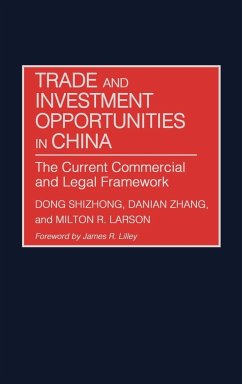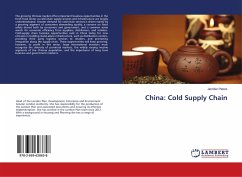This book provides a thorough and practical interdisciplinary foundation for analyzing and structuring business relationships with customers in China in a post-Tiananmen context. The authors present a carefully crafted and timely synthesis of the commercial, financial, and legal framework that has been adopted by China to encourage foreign trade and investment. It focuses on China's steadfast commitment to the support of market-oriented reforms throughout the period of economic isolation imposed by the international community of nations from June 1989 through mid-1991. Support is provided for the position that China has irrevocably embarked on its journey toward a market economy and that the climate for foreign trade and investment has become sufficiently stable to warrant serious consideration by foreign business with long-term expansion goals. The book begins with a historic overview of economic and legal developments in China since 1949. The impact of economic reforms implemented in response to the open door policy adopted by the Chinese leadership in 1979 on the state-planned, product-oriented command society is analyzed in the context of the decentralization of managerial responsibility. The structure and operations of domestic Chinese entities are examined in detail. Also emphasized is the importance of understanding the legal and practical aspects of these relationships prior to entering into serious negotiations with a potential partner. Care is taken to fully examine the Chinese Economic Contract Law and the Chinese Foreign Economic Contract Law. The role and function of China's major financial institutions are reviewed, and China's foreign exchange control system is also examined. The structure of China's foreign trade controls including tariff and non-tariff measures is analyzed for its impact on China's application for participation in GATT. Finally, the book focuses on integrating China's evolving commercial and legal framework for foreign trade and investment into actual business ventures with foreign partners. Foreign investment guidelines are reviewed, and the applicability of the Chinese Foreign Joint Venture Enterprise Law is comprehensively explained. The book is an indispensable tool for CEOs, strategic planners considering off-shore expansion, and academicians in the fields of international law, finance, and marketing.
Hinweis: Dieser Artikel kann nur an eine deutsche Lieferadresse ausgeliefert werden.
Hinweis: Dieser Artikel kann nur an eine deutsche Lieferadresse ausgeliefert werden.








